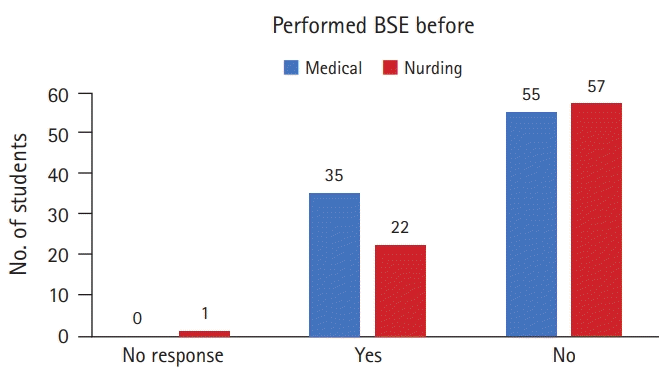To develop the questionnaire, an extensive review of the literature was done and items were developed in reference to already validated items in published articles written by Ahmed et al. [
3] and Madhukumar et al. [
4]. The tools of both articles were used under the Creative Commons license without the permission of the authors. A questionnaire containing 24 items was developed that addressed different variables on knowledge of breast cancer and knowledge of, attitude towards, and skills of breast self-examination (
Supplement 2). The following 4 domains were included in the questionnaire: knowledge of breast cancer (7 items), knowledge of breast self-examination (5 items), attitudes towards breast self-examination (8 items), and skills of practicing breast self-examination (4 items). Correct answers for knowledge of breast cancer and breast self-examination were marked as 1 and incorrect answers were marked as 0, upon basis the total scores were calculated. For the attitude items, a 5-point Likert scale (strongly agree, agree, neutral, disagree, strongly disagree) was used. For positive-attitude items, scores of 5, 4, 3, 1, and 1 corresponded to “strongly agree,” “agree,” “neutral,” “disagree,” and “strongly disagree,” respectively. This scoring was reversed for negative-attitude items. The questionnaire also included a few subjective-type questions on information and practices of performing a breast self-examination.




 PDF
PDF Citation
Citation Print
Print





 XML Download
XML Download